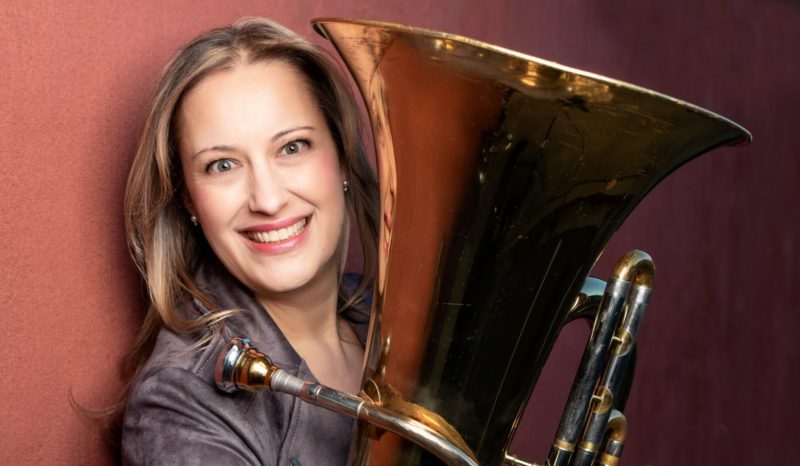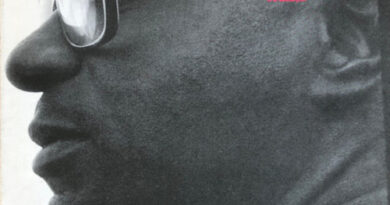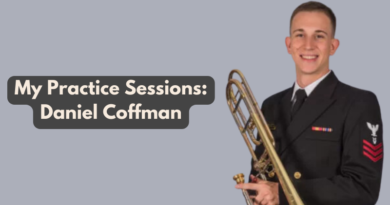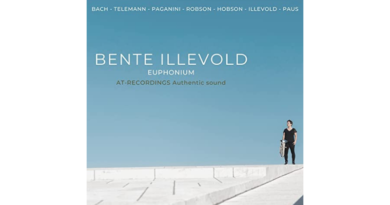My Practice Sessions: Joanna Ross Hersey
Joanna Ross Hersey is President of the International Women’s Brass Conference and Associate Professor of Tuba and Euphonium at the University of North Carolina at Pembroke.
What time do you begin your first practice session?
In a perfect world, I set up my day by practicing the first two hours when I arrive at the university each morning. I am very lucky, as a professor, I have my own studio, and can control my teaching hours to a large extent. As I have taught as an adjunct for periods in my life before this, I appreciate that each and every day. When I was in the United States Coast Guard Band and we had rehearsal each morning, I was sure to come in before that to run my warm-up. As long as I have coffee I can be a morning person. I aim to arrive and be in my chair by 8 am each weekday, Monday through Friday. So then, as the day gets crazy, I have done a solid block of time, and if I can’t get back to the horn again later, at least I have done my routine before my teaching day began. On the weekend I also aim for mornings, so it’s done and I can get it off my back. I do feel the weight of it hanging over me until it is finished. But, many a day I’ve played the first notes at 7 pm or later, and that works fine too. For me, I know I am more likely to lose the willpower to sit and do it the later in the day it gets. Then too I feel so accomplished once my sessions are complete. I write little notes to myself, little goals and reminders after listening to recordings of performance or practice (I record myself a lot). Right now on my stand is a note that says: 1. Every note is glorious. 2. No extraneous movement 3. Full not loud
What is your daily warm-up routine?
I am one of those who does the same types of warm-up exercises each day. I vary the tempos, and how long I spend on each area depending on how I feel, like if something needs more time or something out of the ordinary is coming up that I need to focus on. I know some have great success without as much regimen, for me, the sameness to the routine has been good. Normally I do C tuba first, then switch to F later in the day, re-doing some of the exercises as needed. I buzz at the piano to begin, maybe having done some breathing and centering first as I stood at the piano. I buzz up from the bass into treble clef staffs and play patterns on the piano and buzz. Perhaps 2-3 minutes, depending. Then when I feel looser, I play long tones. I spend some time in the pedals making sure it feels okay. After long tones, I do a tongued quarter note hit on each note to open up the tongue again. This is where I begin lip flexibilities, and lately, that is out of the Bai Lin book. I do about 20 minutes of flexibilities, expanding upward, and then move to major, minor and chromatic scales, tongued and slurred. For chromatics, I use Arban. After that, I do Beautiful Sound Study and an arpeggiated upper range extender exercise. Then I move to Arban arpeggios and play them for 10-15 minutes, various octaves, articulations, and tempos. By this point it is normally about 1.5-2 hours, depending on how long I spent in each area. I use a metronome and have a tuner on throughout. Then I would either take a break, play some etudes, or begin working on solo or chamber material that I am learning for upcoming concerts.
How long has this warm-up been a part of your practice sessions?
It has had additions and changes over the years, but from my college days in [Dan] Perantoni’s studio at Arizona State, this type of routine has been steady for me. The changes were really my adding to it, expanding how long I spent, and watching what I needed help with as a player.
How long is your warm-up routine?
In a perfect world, I would like two hours. Then at that point, I feel I’m good to move to learning new music. I can take a few minutes to rest here and there if needed. I also drink water during my warm-ups, and stroll to the restroom once or twice, down the hall of the music building, to see and say hello to everyone and clear my head for a moment.
What part of your warm-up do you look forward to the most?
I love mentally checking off each section like I’m excited when I get to scales, as those long tones and flexibilities can seem a pain to get through if I’m tired. So reaching scales seems like I am close to finishing! I also am a total geek but I love arpeggios. I think they have huge value for students and all of us, high and low range, leaps, consistency of attack and note length, key work, breathing, and practice on intonation and time.
How does your partner’s and/or family’s schedule fit into your practice sessions?
I am so happy this question is part of the conversation because this is a really tough one! Being a partner, especially to a non-musician, can often create conflict when it appears we’d rather practice than spend time with them. This can cause a lot of hurt feelings, in situations when a weekend day might require several hours on the instrument, but your partner has finished work for the week. There’s no great solution, we all hope to find a supportive partner who accepts the day-in and day-out nature of the practice, but this is not always the case. I have found having a musician partner to also be difficult, as the differing views on this can be tricky. As a parent, this is even more problematic. Many of us practice at times which work best for the family but won’t be as productive, for me this is late night practicing. I’m not accomplishing as much late at night, but it’s better than nothing. Parenting has to come first, and my advice is to not nickel and dime yourself with childcare. As much as you can, engage a helper who can assist with getting the practice you need. Definitely worth finding space in the budget. I have always watched my spending carefully so I could pay for the help, especially when children are young and need constant supervision. Maybe this means I stay late an hour at the university to hit the horn before heading home for the day or get to rehearsal earlier than normal so I can warm-up and work on the music there. It’s not forever you’ll have children at home, so try and not stress about it, and give yourself the gift of time, so you’re able to enjoy without guilt the family time you have later on.
After your last practice session of the day, do you do anything the night before to prepare for the next day’s sessions?
I am a huge fan of yoga for clarity and stress management, and as a performance anxiety tool for my students, and one of my favorites is a classically trained ballet dancer turned yoga guru, Rodney Yee. Everything of his is available on iTunes and Amazon, and I highly recommend them. One of my favorites is a whole series of stretches done using a chair, perfect for backstage or a practice room break. They can be found here: https://itunes.apple.com/us/tv-season/gaiam-rodney-yee-yoga-for-energy-and-stress-relief/id680890892. I always do these at night as the last thing before bed. Many have success with morning yoga before practice, to me, it’s an end of the day thing. I almost always work or practice before going to bed, and this helps clear my mind of all that stress to get a better night’s sleep.



